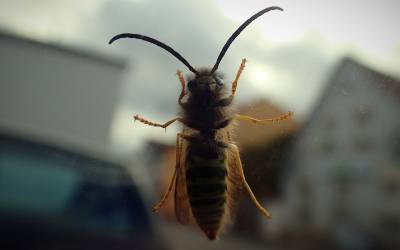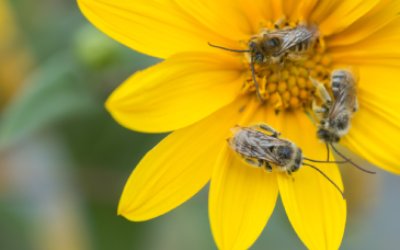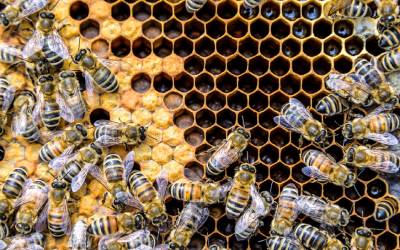Imagine cruising through Albuquerque, basking in the sun, and enjoying the scenic drive. Suddenly, you hear a buzzing sound and spot a wasp zipping around inside your car. Talk about unwelcome passengers. They do not contribute to gas money, and personal space means nothing to them. But fear not; in this blog, we’ll teach you how to prevent wasps from infesting your car. The following tips will keep those pesky wasps and their nests out of your precious wheels.
Why Do I Have Wasps in My Car?
Wasps love dark, warm places to set up shop, and your car fits the bill perfectly. They can squeeze through tiny openings like windows, sunroofs, or vents. They might even hitch a ride on your clothes, bags, or snacks, finding cozy spots under seats, in the glove box, or even in the trunk.
What Attracts Wasps to My Car?
Wasps have a few weaknesses that can lead them straight to your car:
- Leftover food and drinks: These winged critters have a sweet tooth and crave protein. They are not picky and will happily indulge in fruits, soda, candy, meat, cheese, or anything you leave behind. Calories and expiration dates mean nothing to them; they want a free feast.
- Flowers and plants nearby: Wasps feed on nectar and pollen and can follow enticing scents to your vehicle. They will not consider your allergies or preferences; they are simply after a sweet treat.
- Fragrant products inside: Air fresheners, perfumes, or lotions can confuse wasps, making them mistake those scents for a tasty meal. They will not consider your style or mood; they are just curious sniffers.
- Idle cars: If your wheels sit unused for too long, wasps might view it as an open invitation to build their home. They will not care about your schedule or plans; they want a cozy spot to settle in.
How to Prevent Wasps From Nesting in Your Car
To prevent wasp invasions and protect your car sanctuary, follow these simple tips:
- Maintain a clean car.
- Seal any openings.
- Choose shady parking spots.
Uh-oh, Wasps Inside! What Now?
If you encounter wasps in your car, stay calm and follow these steps:
- If the car is moving, find a place to safely park it: The wasp might be dangerous, but driving erratically is much more dangerous. Obey all traffic laws in finding a safe place to stop.
- Move away slowly: Avoid swatting or sudden movements that might provoke the wasp(s). Nonchalantly act like nothing is bothering you.
- Call the pros: Leave the wasp wrangling to the experts. Do not attempt DIY methods or hop in the car. Contact a professional pest control company immediately.
Trust Pest Defense Solutions
Pest Defense Solutions is the team you can count on when it comes to wasp removal from your car. As a local company serving Albuquerque since 2001, we have you covered with the following:
- Prompt and reliable service: We will answer your call within 24 hours and provide same-day service if needed.
- Environmentally friendly solutions: Our natural and organic products ensure safety for you, your family, your pets, and the environment.
- 100% satisfaction guarantee: We stand behind our work, offering a quality guarantee and following up to ensure your satisfaction.
Do not let wasps spoil your day or damage your wheels. Contact Pest Defense Solutions today for a free professional pest control service quote. We will help you bid farewell to those buzzing intruders so you can enjoy your car in peace. We promise not to leave you with a sting.




